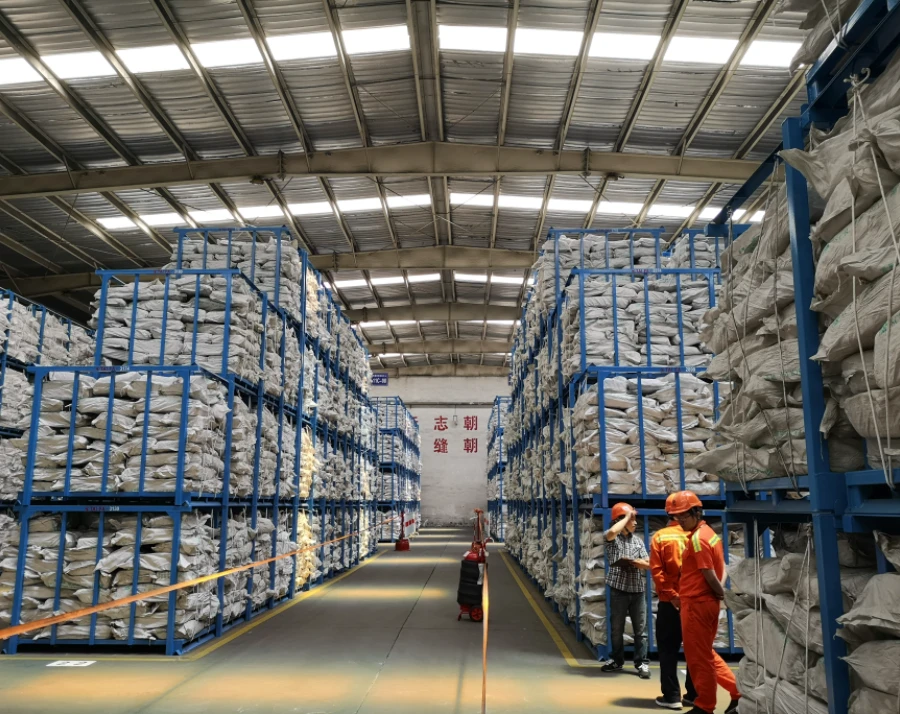



Barium Carbonate Production and Supply for Industrial Applications and Research Needs
Understanding Barium Carbonate Manufacturers Quality, Applications, and Industry Insights
Barium carbonate, a white crystalline powder, plays a significant role in various industrial applications, from ceramics to glass production and environmental technology. As industries continue to evolve, the demand for high-quality barium carbonate has surged, highlighting the important role of manufacturers in ensuring the supply meets the market needs.
Overview of Barium Carbonate
Barium carbonate (BaCO3) is a chemical compound that consists of barium, carbon, and oxygen. Its key characteristics, such as low solubility in water and high thermal stability, make it an invaluable ingredient in many processes. In the ceramics industry, for instance, it acts as a flux, aiding in the melting of raw materials and influencing the finished product's qualities. It is also utilized in the production of glass, where it improves the material's durability and brightness.
Furthermore, barium carbonate is pivotal in the manufacturing of various specialty chemicals, including barium sulfate and barium oxide. In the environmental sector, it serves as a reagent in treating wastewater, effectively removing contaminants by precipitating them out of solution.
The Role of Barium Carbonate Manufacturers
Barium carbonate manufacturers are essential in the supply chain, providing consistent and high-quality products that meet industry standards. The manufacturing process typically involves the use of high-purity barium sources, along with precise control of processing conditions to ensure that the final product meets the required specifications.
Quality assurance is critical within this industry. Manufacturers often implement rigorous testing protocols to assess the purity, particle size distribution, and chemical composition of barium carbonate. Compliance with international standards, such as ISO certifications, is also common among reputable manufacturers, demonstrating their commitment to quality and safety.
Sourcing and Production Techniques
The production of barium carbonate can vary among manufacturers, depending on the raw materials and technology used. Some producers rely on natural barium-bearing ores, while others utilize synthetic methods to achieve desired purity levels. The choice of production technique often influences the cost and quality of the final product.
barium carbonate manufacturer

Advanced manufacturers invest in technology and research to improve their processes, reduce waste, and enhance the cost-effectiveness of barium carbonate production. This innovation is particularly important in light of environmental regulations, pushing companies towards more sustainable practices.
Market Trends and Demand
The global barium carbonate market has experienced substantial growth over the years, driven by increasing demand from sectors such as ceramics, glass, electronics, and environmental management. The rise of smart technologies and new applications in fields like 3D printing and LED manufacturing continue to bolster the market's outlook.
Regions like Asia-Pacific, particularly China and India, account for a significant portion of the production and consumption of barium carbonate, primarily due to their booming ceramics and glass industries. However, manufacturers in Europe and North America are also ramping up production to cater to high-quality standards and specialized applications.
Challenges Faced by Manufacturers
While the market for barium carbonate presents lucrative opportunities, manufacturers face several challenges. Fluctuating raw material prices, environmental regulations, and competition from cheaper synthetic substitutes can impact profitability. Additionally, the need for constant innovation means that manufacturers must allocate resources to research and development while maintaining production efficiency.
Furthermore, establishing a robust supply chain is crucial for manufacturers. They must ensure that their raw materials are sourced from reliable suppliers and that they possess the logistics capability to deliver products promptly. This complexity necessitates strategic partnerships and sometimes, vertical integration to control the supply chain effectively.
Conclusion
Barium carbonate manufacturers play a pivotal role in various industries, from ceramics to environmental solutions. As demand for this versatile compound continues to grow, these manufacturers must navigate challenges while maintaining high standards of quality and sustainability. Continuous innovation and adaptability will be key to thriving in this dynamic market environment. With their expertise and commitment to excellence, barium carbonate manufacturers are poised to contribute significantly to industrial advancements and environmental sustainability in the years to come.
-
Why Sodium Persulfate Is Everywhere NowNewsJul.07,2025
-
Why Polyacrylamide Is in High DemandNewsJul.07,2025
-
Understanding Paint Chemicals and Their ApplicationsNewsJul.07,2025
-
Smart Use Of Mining ChemicalsNewsJul.07,2025
-
Practical Uses of Potassium MonopersulfateNewsJul.07,2025
-
Agrochemicals In Real FarmingNewsJul.07,2025
-
Sodium Chlorite Hot UsesNewsJul.01,2025










